When Brougham commenced the examination of
witnesses, he shredded those who spoke against the Queen and provided other
witnesses for the defence who gave evidence that directly contradicted that of
the prosecution and exonerated the Queen of all improprieties. When asked if
she had ever seen anything that might be thought unbecoming in the Queen’s
behaviour, her lady-in-waiting, Lady Charlotte Lindsay, replied with an
unequivocal ‘Never!’
The Earl of
Llandaff, who had been at Naples and Venice whilst the Queen was residing
there, told the Lords that it was absolutely normal for even the most modest of
Italian ladies to receive morning calls when still in their beds. Mr Keppel
Craven, one of the Queen’s chamberlains, said that he had requested the
Marchese Ghisleri provide a suitable courier, and Pergami was the
recommendation.
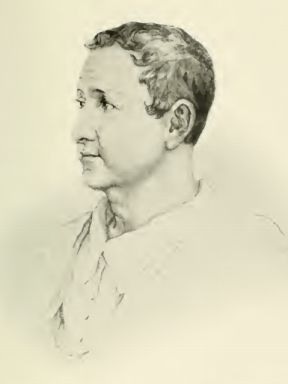 |
| Sir William Gell |
Sir William Gell, another chamberlain, said that he had been
astonished on one occasion to see Ghisleri, in full Austrian chamberlain’s
uniform, throw his arms around Pergami and kiss him twice, in the street and
before the public.
“This familiarity is customary in Italy, between friends and equals when they part from one another.”
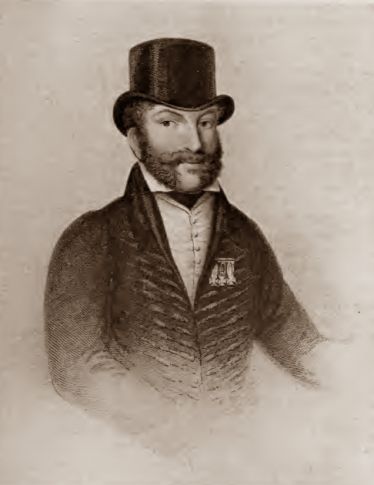 |
| Bartolomeo Pergami |
The prosecution had made great
play of the incident aboard a polacca, when sailing back from Jerusalem,
when Pergami and the Queen had slept in the same tent on the deck. They had,
but at the Queen’s request, as she needed a trusted male servant at close hand,
on a ship manned by Greek and Italian seamen, who might not be trusted to
provide assistance in the pirate-infested waters; they had slept full clothed,
on separate couches – surely if they intended intimacy, they would at least
have gone below decks and slept in a much-less conspicuous cabin.
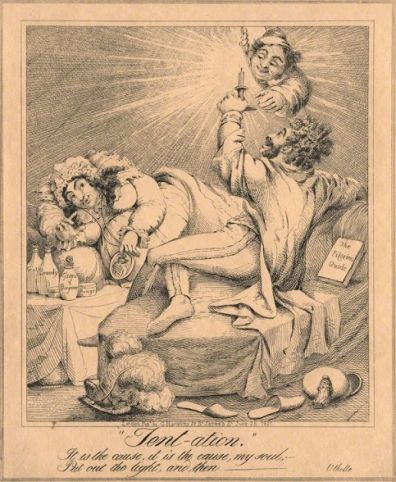 |
| Tent-ation |
Had Pergami
and Caroline travelled together in the same carriage? – Yes, they had, but the
prosecution witnesses had failed to mention that Pergami’s sister and daughter
had also been in the same carriage. Then Brougham called two other Italians,
Giroline and Pomi, both of whom revealed that the prosecution witnesses had
been paid 40 francs a day each and given free room and board.
 |
| What an Obviously Not-Dishonest Italian Looks Like. |
Was this not
tantamount to the bribing of witnesses? How could they be trusted? (Byron,
writing to his publisher during the case, mentions, almost in passing, that
testimony of any sort could be bought in Italy, if the price was right).
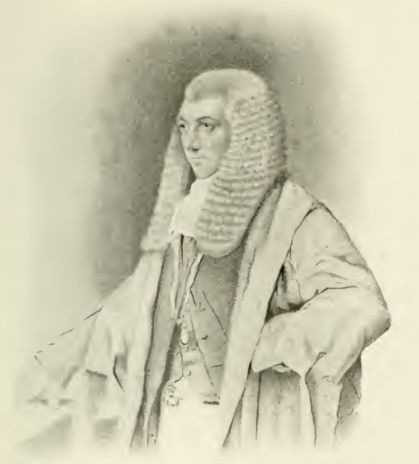 |
| Sir Robert Gifford, the Attorney-General |
Brougham recalled to the stand one of the prosecution witnesses, Guiseppe
Rastelli, but the Attorney-General was forced to admit that Rastelli was no
longer in England. He had been sent to Milan, to assure any witnesses that may
yet still be called from there, that there was nothing to fear in coming to
England, in spite of the near lynching of some of the Italians at Dover. Which
was convenient. Was it not the case that he had been sent to Milan to get him
out of the country, that he was a secret agent away on business? It was all a
very, well, unEnglish way of going about things.
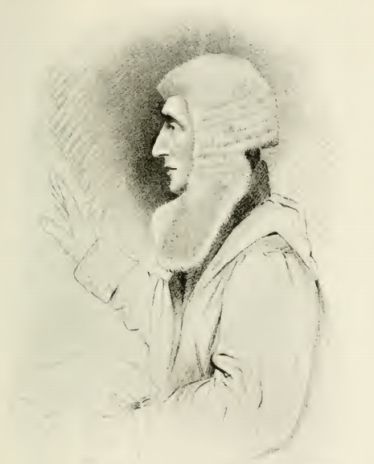 |
| Thomas Denman, the Queen's Solicitor |
Denman, the Queen’s solicitor,
summed the case up and very nearly scuppered the whole defence when, in his
final sentence, he alluded to the Woman Taken in Adultery, to whom Christ had
said,
“If no accuser can come forward to condemn thee, neither do I condemn thee: go, and sin no more.”
It was not so much the reference, as the way it
was delivered, and it did not sit well with the more religious Lords, and the
King’s supporters made much of Denman’s faux pas.
One shining wit was inspired to pen this
verse,
Gracious Queen, we thee implore,Go away and sin no more;But if that effort be too great,Go away - at any rate.
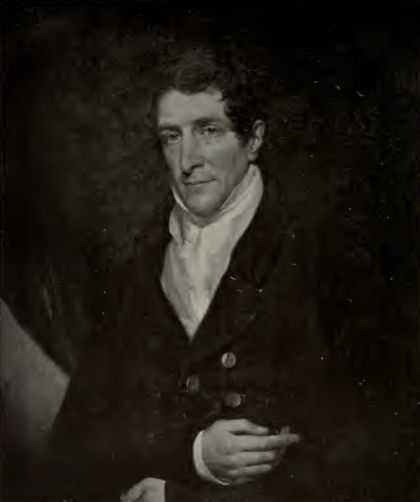 |
| Thomas Denman, the Queen's Solicitor |
In one of the longest debates ever to take place in
the Upper House, the Lords considered the pros and cons, mulled over what they
had seen and heard, and eventually voted for a second reading of the Bill, with
123 declaring themselves ‘content’ and 95 ‘not content’. And so, with a
majority of 28, the Lords declared Caroline of Brunswick guilty of licentious
and disgraceful behaviour with a menial servant.
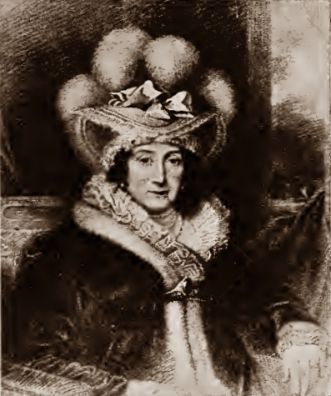 |
| Would you behave licentiously and disgracefully with this woman? |
But that was not the end. A
number of those who had voted in favour were the bishops, who were quite
prepared to degrade Caroline from the throne but reluctant to grant a divorce,
but the Whigs, strategically, pressed for the retention of the divorce clause
in the Bill, (a move thus supported by the King), and when the vote for the
third reading was taken, the bishops moved against it. In consequence, the vote
was 108 for, with 99 against, a majority of a mere 9 votes.
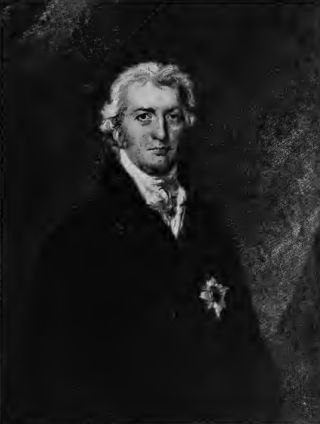 |
| Lord Liverpool |
It became
abundantly clear to the Tories that if the Bill went before the Commons, with
such a slim majority, it was bound to be defeated. With reluctance, Lord
Liverpool, the Prime Minister, withdrew the Bill, and in spite, on paper, of
having won the vote, the King’s party had lost the battle.
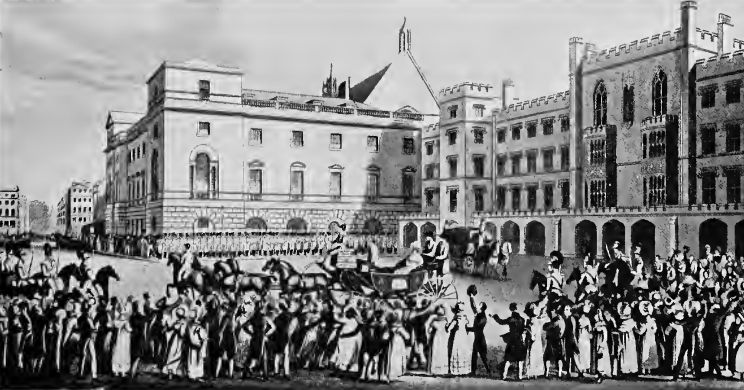 |
| Queen Caroline leaves the Lords after the Bill fails |
To cries of Vivat
Regina, the public turned out in support of the Queen, and there were
serious fears that there could be a revolution in England. Members of the
Court, and even the King himself, were reluctant to go out in public. The
coaches of the Lords were stopped in the street and were not allowed to proceed
until the occupants had alighted and cried, “God save the Queen.”
Lord
Lonsdale, stopped in this way, was said to have had his revenge on the mob by shouting,
“God save the Queen – may all of your wives be like her.”
Tomorrow - Does George IV admit defeat? Or do things turn nasty?
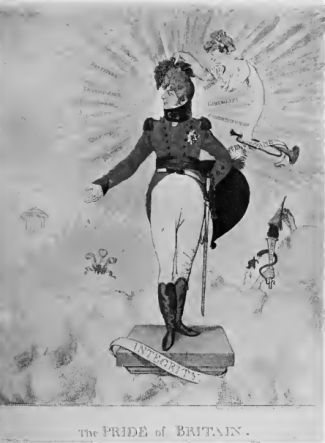
No comments:
Post a Comment